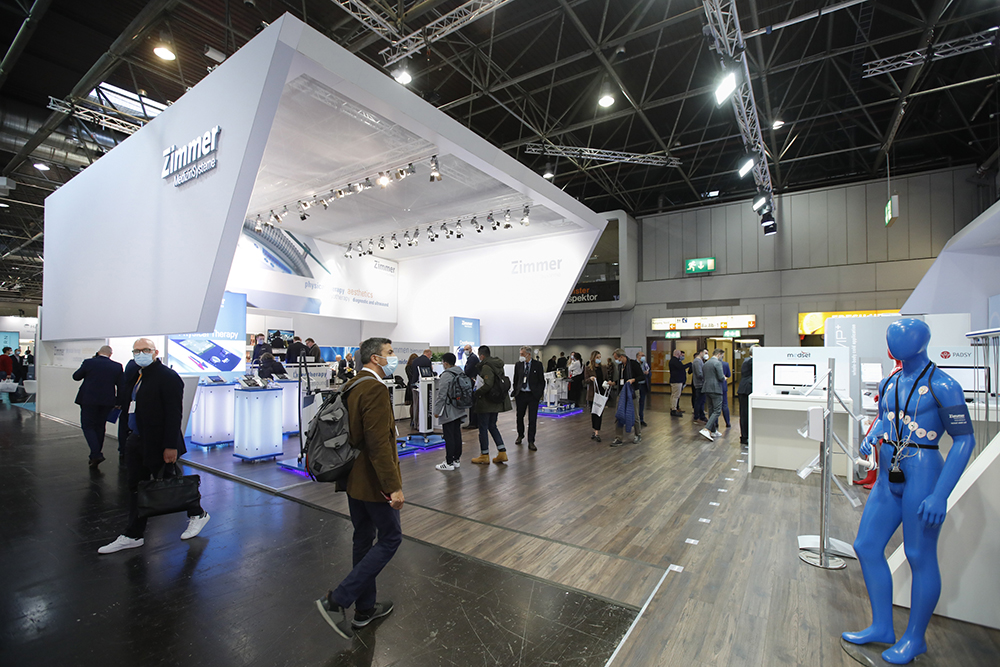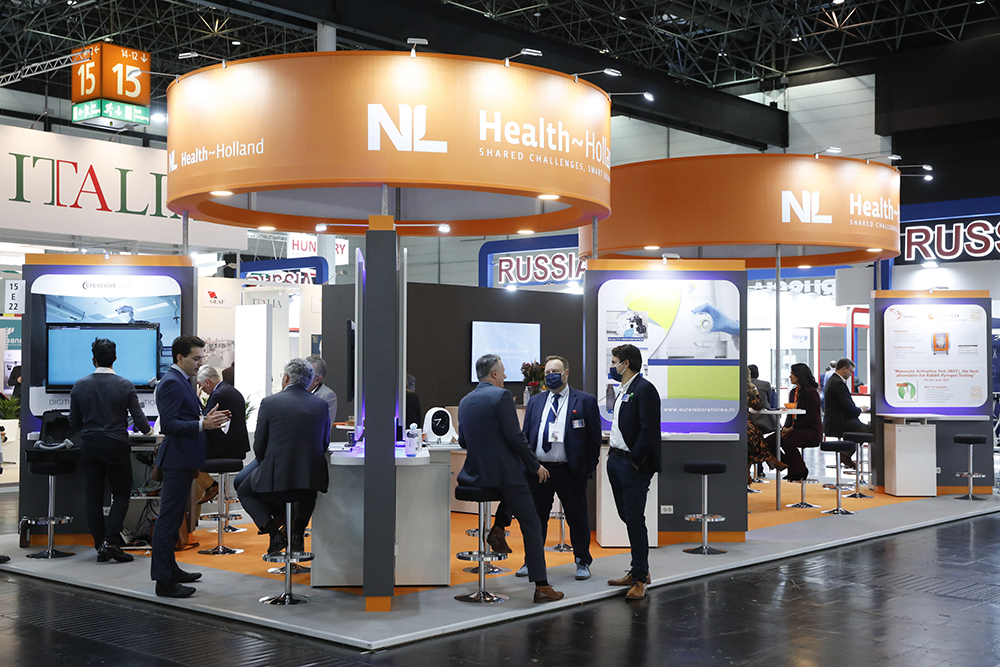46,000 visitors attend MEDICA, exceeding expectations
More than 46,000 visitors (73% international) from 150 countries attended MEDICA 2021 in person, exceeding expectations following last year’s live event cancelation due to the COVID-19 pandemic. The four day event held from 15-18 November in Düsseldorf, Germany was extremely successful, according to the organisers.
“The atmosphere in the trade fair halls was relaxed and characterised by a sense of optimism throughout; conversations with our customers have shown that in many cases, we have exceeded expectations. People were finally able to establish new and intensify existing contacts in person,” said Erhard Wienkamp, Managing Director of Messe Düsseldorf, visibly pleased as he took stock of the event.
Visitors engaged with the 3,033 MEDICA and 490 COMPAMED exhibitors, obtaining information on the comprehensive range of innovations for outpatient and inpatient care.
“The numbers are encouraging, and were hardly expected to be at this level in spring. With the combination of trade fair events and digital supplements, MEDICA and COMPAMED have given the industry strong stimuli. The exhibitors are happy to have come to Düsseldorf and are already actively inquiring about options to take part next year,” said Christian Grosser, Director Health & Medical Technologies at Messe Düsseldorf.
The industry portals – www.medica-tradefair.com and www.compamed-tradefair.com – allowed virtual attendees access to livestreams of the expert forums that had been integrated into the trade fairs as well as the 44th German Hospital Conference and the MEDICA MEDICINE + SPORTS CONFERENCE. It also enabled them to network via the special Matchmaking tool, and obtain information on innovative products in the exhibitors’ online showrooms.
“As a hybrid in-person event, MEDICA has given exhibitors and visitors a vital platform to discuss innovative medical products and current trends in the field of medical technology, both face-to-face and online. In doing so, the fair supports exhibitors in their work on European and international markets,” explained Hans-Peter Bursig, Managing Director of the Electromedical Technology Trade Association at ZVEI.
EU Medical Device Regulation
The application of the new EU Medical Device Regulation (MDR) was discussed widely throughout the event. Commenting on the MDR, Marcus Kuhlman, Head of Medical Technology at German industry association SPECTARIS, said: “In principle, it is appropriate and essential to regulate medical technology, as this guarantees an extremely high level of patient and user safety across the board. But we need to critically question any regulations that do not sufficiently contribute to an increase in safety and retract them if necessary. If we don’t, we weaken Europe’s position as a research and innovation location.”
COVID-19 pandemic
As expected, COVID-19 and the research findings to date were recurring themes in many talks at the forums and accompanying conferences. The MEDICA MEDICINE + SPORTS CONFERENCE, for example, took a closer look at how to get back into sports after suffering from long-COVID, while the MEDICA ECON FORUM (organised by German health insurance company Techniker Krankenkasse) and the MEDICA HEALTH IT FORUM focused on digitising processes in the healthcare system.
Start-up competition
In line with these themes, exhibitors offered many innovations for the clinical and outpatient field. And the young start-up scene was heavily involved as well, something that was proven during the pitch competitions held as part of the 10th MEDICA Start-up Competition and the 13th Healthcare Innovation World Cup, which took place on the MEDICA CONNECTED HEALTHCARE FORUM programme stage.
The 13th Healthcare Innovation World Cup focused on innovative devices and smart applications for digital networking and process integration, with an eye on the Internet of Medical Things. From among 300 entries, the jury selected 12 start-ups for the finals on 15 November. Germany-based Implandata Ophthalmic Products took first place with an implanted and biocompatible microsensor for use in glaucoma telecare.
Ideas ranged from artificial intelligence (AI) and health apps to robotics at the 10th MEDICA Start-up Competition (on 16 November). Here, Finland-based Phonolyser took first place with its smart heart sound analyser. The analyser combines AI (processing and analysing signals), Doppler technology (ultrasound) and sound analysis to comprehensively assess and examine congenital heart defects.
The next MEDICA and COMPAMED are scheduled to take place in Düsseldorf from 14-17 November 2022.
Both photos: Messe Düsseldorf/ctillmann



